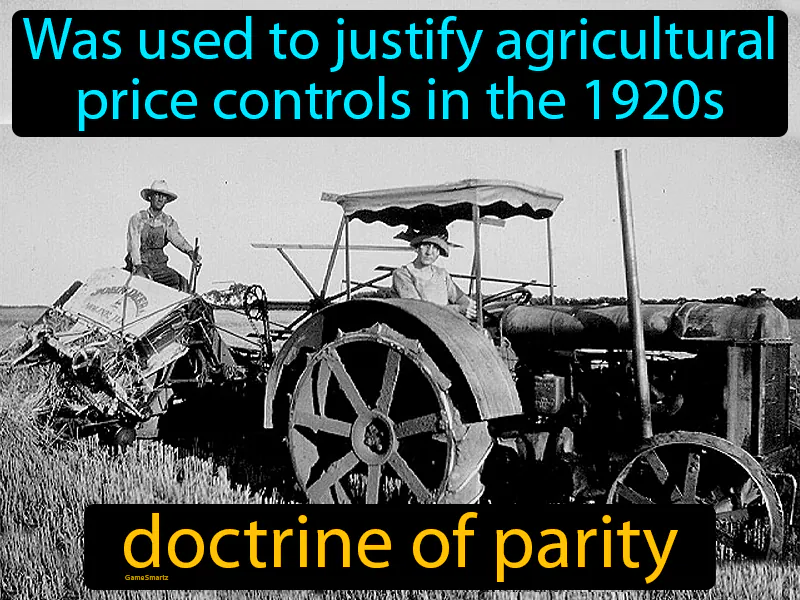Doctrine Of Parity

The doctrine of parity was a principle used during the New Deal era to ensure farmers received fair prices for their crops, comparable to pre-World War I levels. This was important because the Great Depression had caused crop prices to plummet, leaving many farmers in financial trouble. By stabilizing agricultural prices, the government aimed to boost the rural economy and increase farmers' purchasing power. Today, the concept still matters as it highlights the importance of fair pricing in agriculture, which can affect food availability and costs for consumers. For example, if milk prices are kept stable through similar policies, it ensures that dairy farmers can sustain their operations, and families can afford to buy milk without sudden price hikes.
Practice Version

Doctrine Of Parity: Was used to justify agricultural price controls in the 1920s. Doctrine of parity. The doctrine of parity aimed to ensure farmers received fair prices for their crops, relative to the cost of living and production, to maintain economic stability.